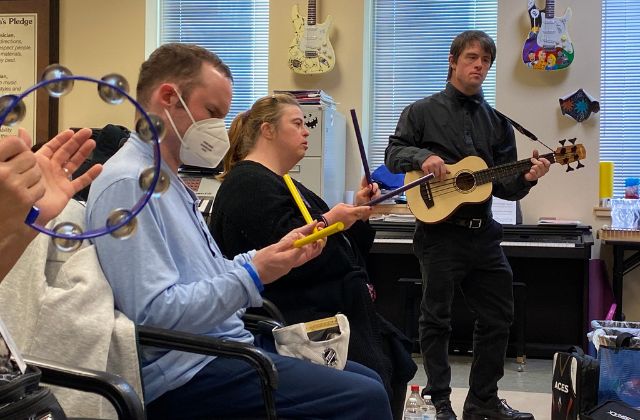Living with a disability presents unique challenges, but it doesn’t have to limit an individual’s ability to lead an independent and fulfilling life. A day program for adults with disabilities is a structured environment designed to foster growth, learning, and independence for individuals with varying abilities. These programs play a crucial role in helping people build the skills, confidence, and support systems they need to navigate life on their terms.
Fostering Personal Growth and Confidence
A key element of independence is confidence, and a day program for adults with disabilities helps participants develop that sense of self-assurance. These programs offer individualised attention to help participants work on skills that matter to them, whether improving communication, learning how to manage daily tasks, or building social connections.
Tailored Support for Different Needs
Each person has their own set of strengths and challenges. A well-run day program recognises this and works with individuals to create personalised goals. Some participants may focus on improving social skills, while others might need help with physical exercises or vocational training. This individualised support encourages participants to work independently, setting the foundation for meaningful personal development.
Building Confidence Through Accomplishment
One way day programs boost independence is by fostering a sense of accomplishment. By engaging in challenging yet achievable activities, participants can experience success on their terms. Whether completing a project, mastering a new skill, or simply making a new friend, these moments of achievement can lead to increased self-esteem and a greater willingness to take on new challenges.
Enhancing Daily Living Skills
Managing daily living tasks is a significant aspect of living independently. Day programs for adults with disabilities often focus on helping participants develop essential life skills to handle day-to-day responsibilities more efficiently.
Practical Skills for Everyday Life
Participants in a day program can receive training on various daily living skills, from preparing simple meals to maintaining personal hygiene. Staff work closely with individuals to ensure they understand the steps involved in each task and offer guidance and encouragement as they practice. Over time, participants become more adept at handling these responsibilities, which can translate into greater independence in their homes and communities.
Budgeting and Financial Management
Managing money is another critical skill for independence. Some day programs include financial literacy, teaching participants to budget, save, and make informed spending choices. Learning these skills can empower individuals to take control of their finances and make decisions that align with their personal goals.
Socialisation and Community Involvement
Independence doesn’t just mean taking care of oneself—it also means engaging with others and being part of a community. Many individuals with disabilities face challenges in building and maintaining social connections. A day program for adults with disabilities can offer a supportive environment for making friends and interacting with others.
Building Meaningful Relationships
In a day program, participants often work together on group projects, participate in social activities, or simply talk with one another. These interactions help individuals develop the social skills they need to form meaningful relationships with peers, staff members, or people in their wider communities. Developing these connections combats isolation and helps individuals learn how to navigate social situations confidently.
Encouraging Community Participation
Many day programs emphasise the importance of being active within the community. Participants may have opportunities to volunteer, attend local events, or take part in recreational activities outside the program. By encouraging community participation, these programs help individuals build a sense of belonging and reinforce the idea that they can contribute meaningfully to society.
Developing Vocational Skills and Career Opportunities
For many adults with disabilities, employment is a significant goal on the path to independence. Day programs often offer vocational training and support to help participants build the skills they need to enter the workforce.
Job Readiness and Training
Day programs may include job readiness classes, where participants can learn essential skills like resume writing, interviewing techniques, and workplace etiquette. Additionally, some programs offer hands-on training in specific fields, allowing participants to gain practical experience in a supportive environment. By building these skills, participants become better equipped to pursue employment opportunities that match their abilities and interests.
Supported Employment Options
For individuals needing extra support in the workplace, day programs often collaborate with local businesses to create supported employment opportunities. In these arrangements, participants work part-time in a real job setting with the help of a job coach or support staff. This type of employment helps participants earn an income and boosts their sense of independence and self-worth.
Promoting Emotional Well-being and Resilience
Living with a disability can sometimes lead to feelings of isolation, frustration, or low self-esteem. A day program for adults with disabilities provides a safe and supportive environment where participants can receive emotional support and work on developing resilience.
Emotional Support from Staff and Peers
Staff members in these programs are trained to offer compassionate care and guidance, helping participants navigate emotional challenges. Whether it’s coping with a difficult day or celebrating a personal success, participants know they have a network of people who are there to support them. Peers also play a vital role in this support system, as they share similar experiences and can offer empathy and encouragement.
Teaching Coping Strategies
Day programs often incorporate lessons on emotional regulation and stress management. Participants learn coping strategies such as mindfulness, relaxation techniques, and positive thinking to help them manage their emotions more effectively. These tools improve emotional well-being and contribute to a greater sense of independence as participants learn to handle challenges independently.
Conclusion
A day program for adults with disabilities can be life-changing. By fostering personal growth, enhancing daily living skills, promoting socialisation, developing vocational abilities, and supporting emotional well-being, these programs provide participants with the tools they need to live more independently. With the right support system, individuals with disabilities can lead fulfilling, empowered lives, contributing to their communities and confidently pursuing their dreams.







